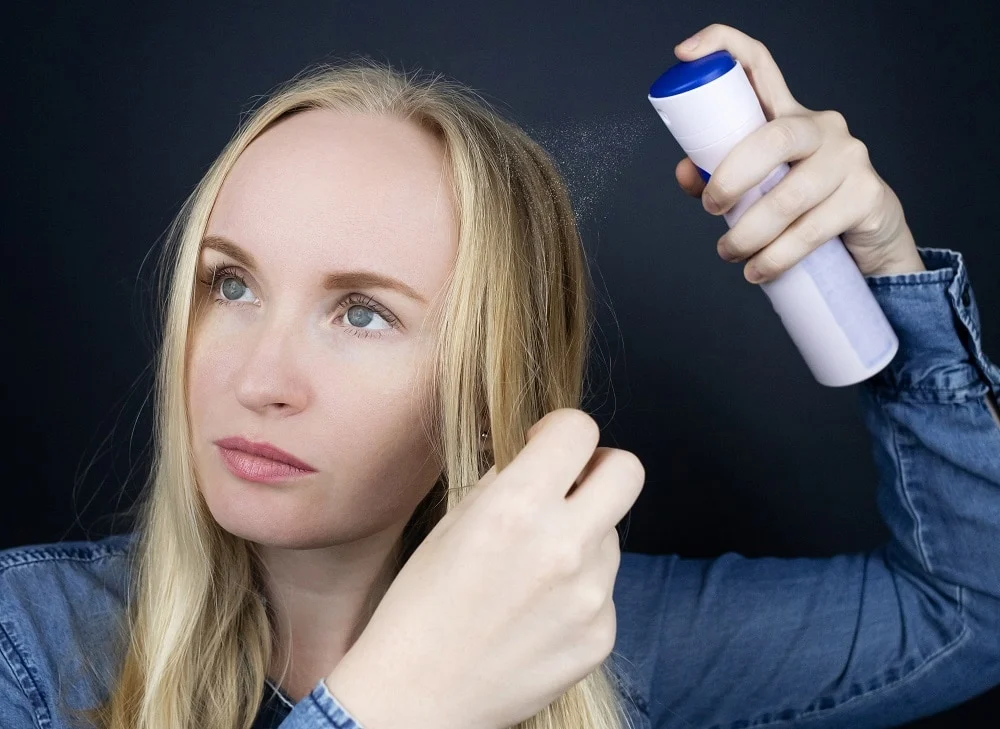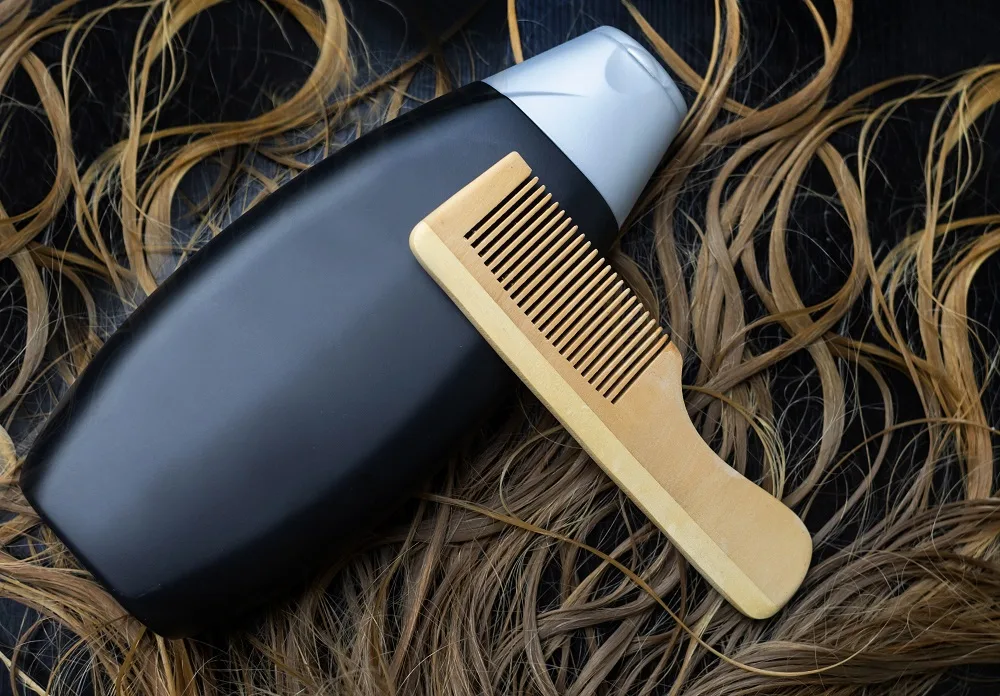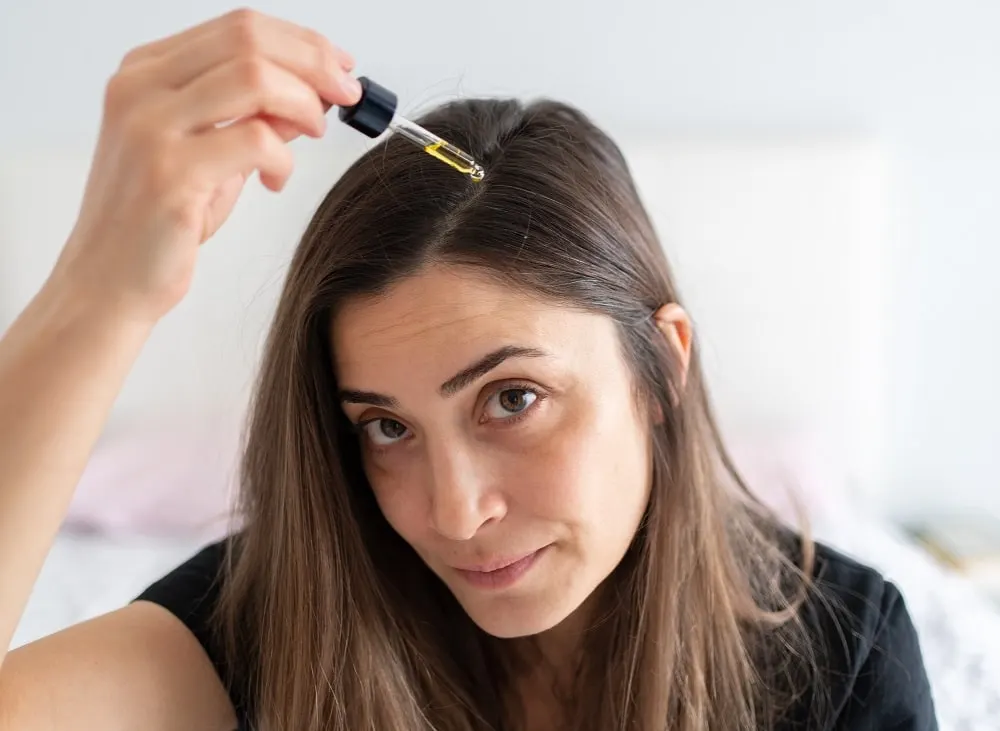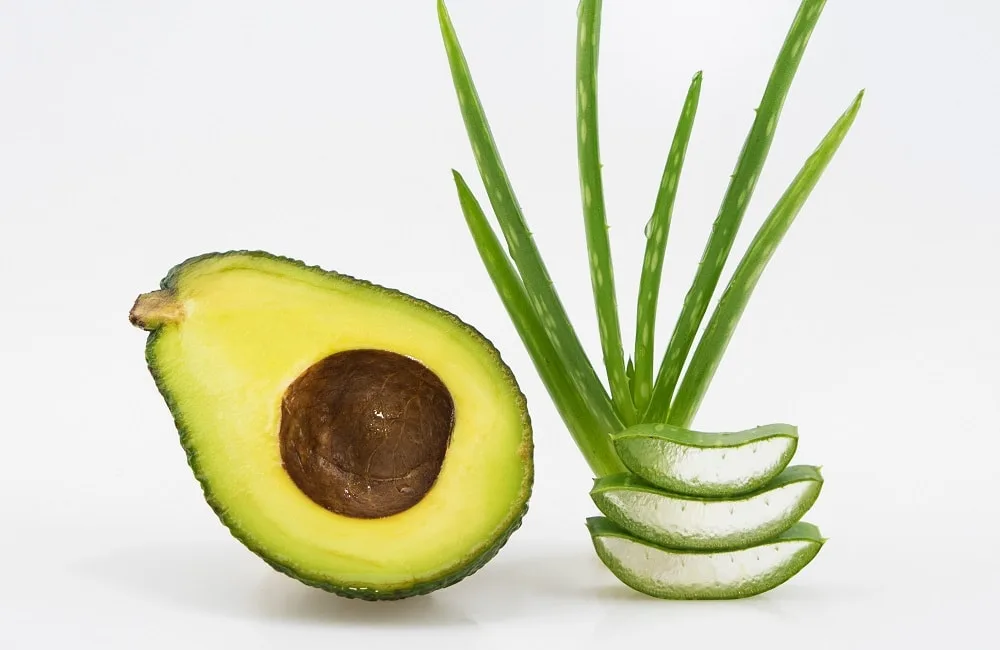Thick hair strands impart a luscious, healthier look to your scalp. Thin hair is not very aesthetic and is perceived to be a sign of hair loss, even though it is not always indicative of permanent hair loss.
There are numerous reasons for hair thinning, but if your hair feels thin after washing, you must apply timely fixes to prevent further damage because a stitch in time saves nine!
Why Does My Hair Feel Thinner After I Wash It?
You might feel like undergoing hair loss after noticing that your hair is suddenly feeling thinner. Washing your body and hair is a healthy activity. Some people give up frequently washing their hair for fear of hair fall.

Let’s discuss all the possible causes why your hair feels thinner after rinsing:
Natural Oil Removal
Regular bathing and frequent hair washing mean exposing your hair to too much water. Though water is necessary to keep the body and the scalp hydrated and healthy, excess of everything is bad.
One plausible explanation for your hair appearing thin after a shower is that water strips off the natural oils from your scalp, leaving it dry and imparting a thinner look.
Studies show that this overcleaning leaves the hair thin and dull. Excessive hair cleansing is linked to dry and damaged hair.
Hot Water Can Damage Strands
The soothing hot bath you enjoy the most may be the culprit for your post-shower hair thinning. While hot water does not cause permanent hair loss, it drains oils and sebum from the scalp by raising the hair cuticles. The dry hair, devoid of oils, is then prone to breaking and thinning.
Hot water can also cause other scalp issues, including dryness or dandruff, itchiness, split ends, and a brittle texture.
Washing your hair with cool or lukewarm water is preferred as it helps preserve the natural oils.
Sulfate Shampoos
Sulfate shampoos can also perpetuate hair thinning by breaking down the hair shafts. Shampoos containing sulfates like sodium lauryl sulfates can cause scalp irritation and may lead to hair thinning in some people.
According to a study, sulfate compounds like sodium dodecyl sulfate remove proteins from hair and make them thin.
How to Fix Hair That Suddenly Feels After Washing?
You can follow the below tips if your hair feels thinner after rinsing and not only prevent thinning but also reverse it.
#1. Avoid Regular Washing

Regular hair washing can damage the hair and scalp if you are prone to a dry and brittle scalp. Dermatologists recommend you wash your hair two to three times a week. Use dry shampoo alternatively.
Modern research shows high frequency (5 to 6 times a week) of hair washing does not cause any harm to hair quality. However, people prone to thinning and breaking should limit it to three times per day.
#2. Avoid Hot Water Baths
A steam bath can be effective in relaxing your body and clearing your hair of dirt and debris, but hot water does more harm than good to your hair.
Avoid hot water baths if your hair feels thin after washing as it dehydrates the stands, leading to breakage and thinning. Warm water can also lead to itchiness and dandruff. Hot water-induced weakening of the roots contributes to frizziness and eventual falling of the hair.
#3. Use Sulfate-Free Shampoos

Sulfate-free shampoos are safe for your hair and scalp as they help preserve the natural oils in the scalp. Shampoos with natural ingredients are light on the hair and do not have any significant damaging effects on the strands like drying shampoos.
Gel network shampoos containing fatty alcohols improve the structural strength of the hair. Therefore, people suffering from hair thinning should try these hair products.
You can also find commercially available volume-adding shampoos to make for the lost hair thickness. Washing hair with a volume-adding conditioner or shampoo prevents the process of hair thinning while providing them additional volume and imparting a thick appearance.
#4. Do Not Immediately Style Your Hair
Hair styling using heat can damage your hair. Applying heat after bathing can have grave consequences on the hair structure. Over-styling your hair can lead to evident damage to the roots.
That ultimately results in thinning of the hair. Areas repeatedly exposed to heating are more prone to hair loss and weak hair regrowth.
#5. Add a Hair Thickening Serum to Your Hair Care Routine

Several hair serums contain ingredients that can increase the thickness and volume of your hair. Various ingredients in hair serum can promote hair growth and simultaneously add volume.
Hair serum application significantly improves vellus hair and terminal hair density. Reductions in hair thinning were also noted in the study.
Biotin is known for improving hair density, which can be fruitful for covering thinning. Compared to a placebo, biotin and silicon ingredient complex noticeably increased hair thickness.
#6. Change Your Diet
If your hair has gone thin, you must change your dietary habits. Consider incorporating fatty and proteinaceous foods into your diet. A diet comprising salmon, eggs, yogurt, and nuts (almonds, walnuts, etc.) is ideal for thickening hair.
#7. Take Help From Nature

If you want to avoid the use of commercially prepared products, you can take help from some potent natural remedies. You can prepare your hair gel from avocados, aloe vera, and orange puree. These natural products can help regain the lost thickness by stimulating the hair follicles.
Eggs are also super-beneficial for your hair. You can mix egg yolks in water, apply them to the roots, and leave it on for around 30 minutes to nourish the scalp and promote stronger growth.
Summary
Your hair may feel thinner after washing due to several factors such as natural oil removal, hot water damaging strands, and the use of sulfate shampoos. To fix this issue:
- Limit frequent washing to 2-3 times a week.
- Use lukewarm water instead of hot water.
- Switch to sulfate-free shampoos.
- Avoid immediate heat styling.
- Use hair-thickening serums.
- Improve your diet.
- Consider natural remedies like aloe vera or egg yolk masks.
Avoid using sulfate shampoos and use volume-increasing conditioners or shampoos. Applying and eating fatty and proteinaceous foods can also help regain hair thickness.
